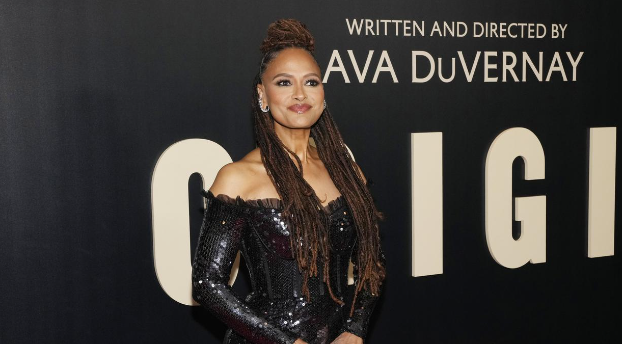In 2020, Isabel Wilkerson’s groundbreaking book “Caste: The Origins of Our Discontents” shook the literary world with its profound exploration of entrenched systems of social categorization and their devastating impact on human society. From Nazi Germany to modern-day America, Wilkerson’s meticulously researched work exposes the insidious ways in which caste systems have perpetuated injustice and oppression across cultures and centuries. Specifically focusing on the subjugation of Black people in the United States, Wilkerson unveils the deep-rooted roots of systemic racism that continue to plague society.
Enter Ava DuVernay, the acclaimed writer/director renowned for her thought-provoking documentaries. With “Origin,” DuVernay offers a moving biopic that peels back the layers of Wilkerson’s life and creative process. Featuring Aunjanue Ellis-Taylor’s stirring portrayal of Wilkerson, the film delves into the genesis of “Caste,” from Wilkerson’s initial contemplations sparked by the tragedy of Trayvon Martin’s death to the profound revelations that followed.
Wilkerson’s journey, as depicted in DuVernay’s film, is one of profound loss and unwavering resilience. From the sudden death of her beloved husband to the subsequent passing of her mother, Wilkerson grapples with grief while confronting the harsh realities of racial injustice. Through meticulous research and introspection, she unveils the intricate web of social hierarchy that shapes human interaction, challenging readers to confront uncomfortable truths about privilege and power.
“Caste” is not just a book—it’s a haunting reminder of humanity’s capacity for cruelty and compassion. DuVernay masterfully captures the essence of Wilkerson’s message, weaving together poignant moments of historical tragedy with intimate glimpses of personal triumph. From the heart-wrenching stories of racial discrimination to the transformative power of empathy, “Origin” illuminates the profound impact of Wilkerson’s work on both individuals and society as a whole.
As Wilkerson eloquently states, “Once awakened, we have a choice.” “Caste” and its cinematic adaptation serve as a rallying cry for social change, urging readers and viewers alike to challenge the status quo and strive for a world free from the shackles of caste. Through empathy and understanding, we can dismantle the systems of oppression that divide us and forge a brighter future for generations to come.








